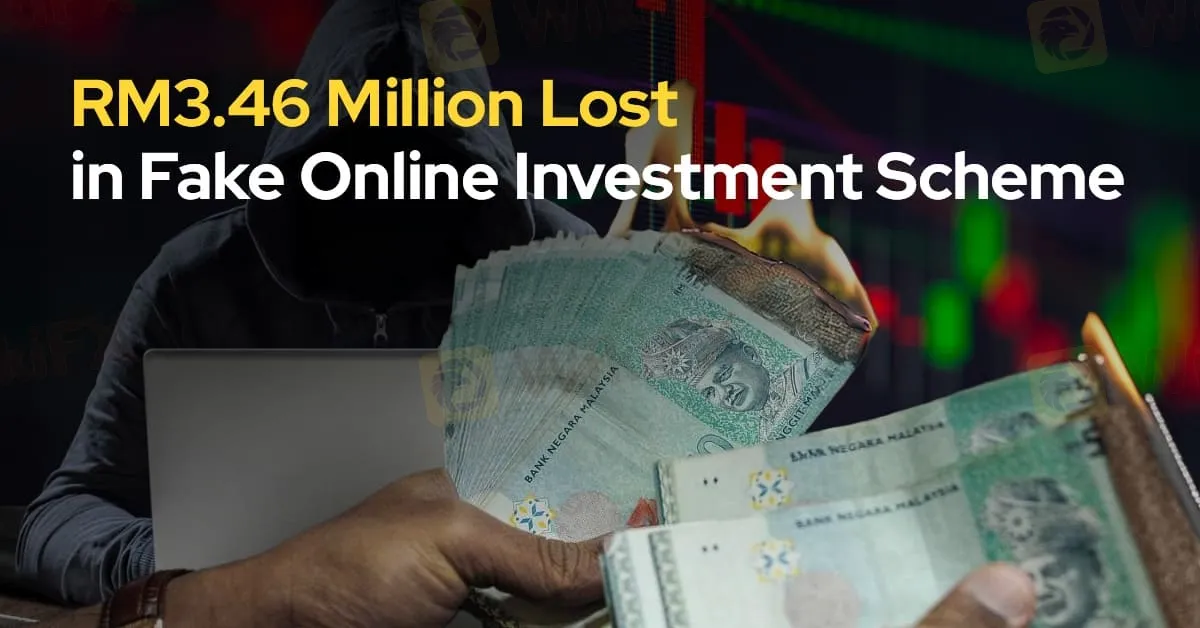简体中文
繁體中文
English
Pусский
日本語
ภาษาไทย
Tiếng Việt
Bahasa Indonesia
Español
हिन्दी
Filippiiniläinen
Français
Deutsch
Português
Türkçe
한국어
العربية
RM3.46 Million Lost in Fake Online Investment Scheme
abstrak:A recent case in Selangor (Malaysia) highlights the growing threat of online investment scams, with one individual losing RM3.46 million to a fraudulent dimensional stock investment scheme. The scam was connected to a supposed QFII stock investment account called L-Trader Max.

A recent case in Selangor (Malaysia) highlights the growing threat of online investment scams, with one individual losing RM3.46 million to a fraudulent dimensional stock investment scheme. The scam was connected to a supposed QFII stock investment account called L-Trader Max.
Selangor police chief Hussein Omar Khan revealed that the victim had been lured into the investment after being convinced of its legitimacy. It all started with a man who persuaded the individual to sign a contract with a company known as “Dimensional.” The company was presented as being registered and operating out of Singapore, which gave it an air of credibility. Unfortunately, as is often the case with scams, the promises were too good to be true.
Once the contract was signed, the victim transferred funds, believing they were investing in a genuine stock market opportunity. However, the signed agreement turned out to be fake, and the company “Dimensional” was nothing more than a front for fraudulent activity. Upon realising something was wrong, the victim lodged a police report in the Serdang district, leading to the investigation.

The case is now being investigated under Section 420 of the Penal Code, which deals with cheating and fraud. This is just one of many scams that prey on unsuspecting individuals looking to make smart investments, and it's a stark reminder that caution is critical when it comes to online trading.
Hussein offered important advice for the public: always verify any investment platform before committing funds, especially when dealing with online traders or apps. Many scammers operate under the guise of legitimacy, making it crucial to check with the relevant authorities. He also pointed out that the National Scam Response Centre (997) is available for anyone needing help or clarification about suspicious schemes.

Disclaimer:
Ang mga pananaw sa artikulong ito ay kumakatawan lamang sa mga personal na pananaw ng may-akda at hindi bumubuo ng payo sa pamumuhunan para sa platform na ito. Ang platform na ito ay hindi ginagarantiyahan ang kawastuhan, pagkakumpleto at pagiging maagap na impormasyon ng artikulo, o mananagot din para sa anumang pagkawala na sanhi ng paggamit o pag-asa ng impormasyon ng artikulo.
Broker ng WikiFX
Exchange Rate


